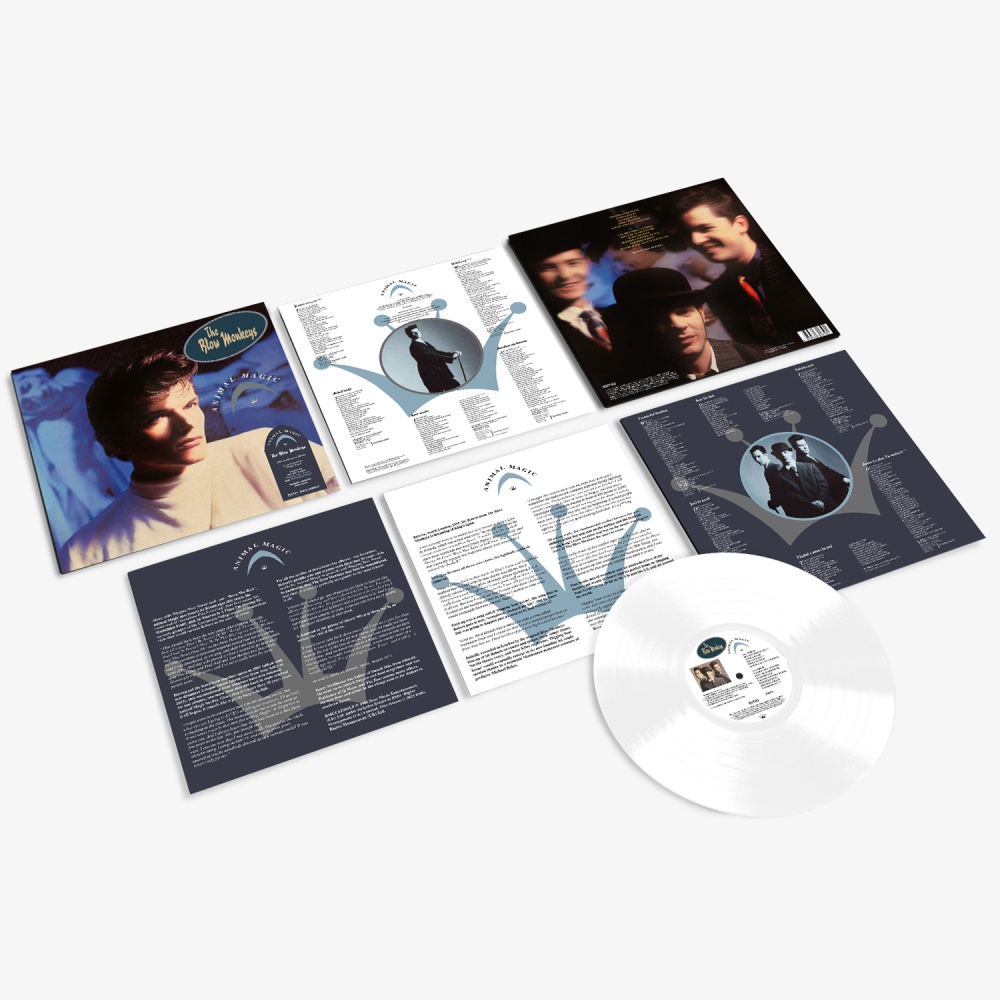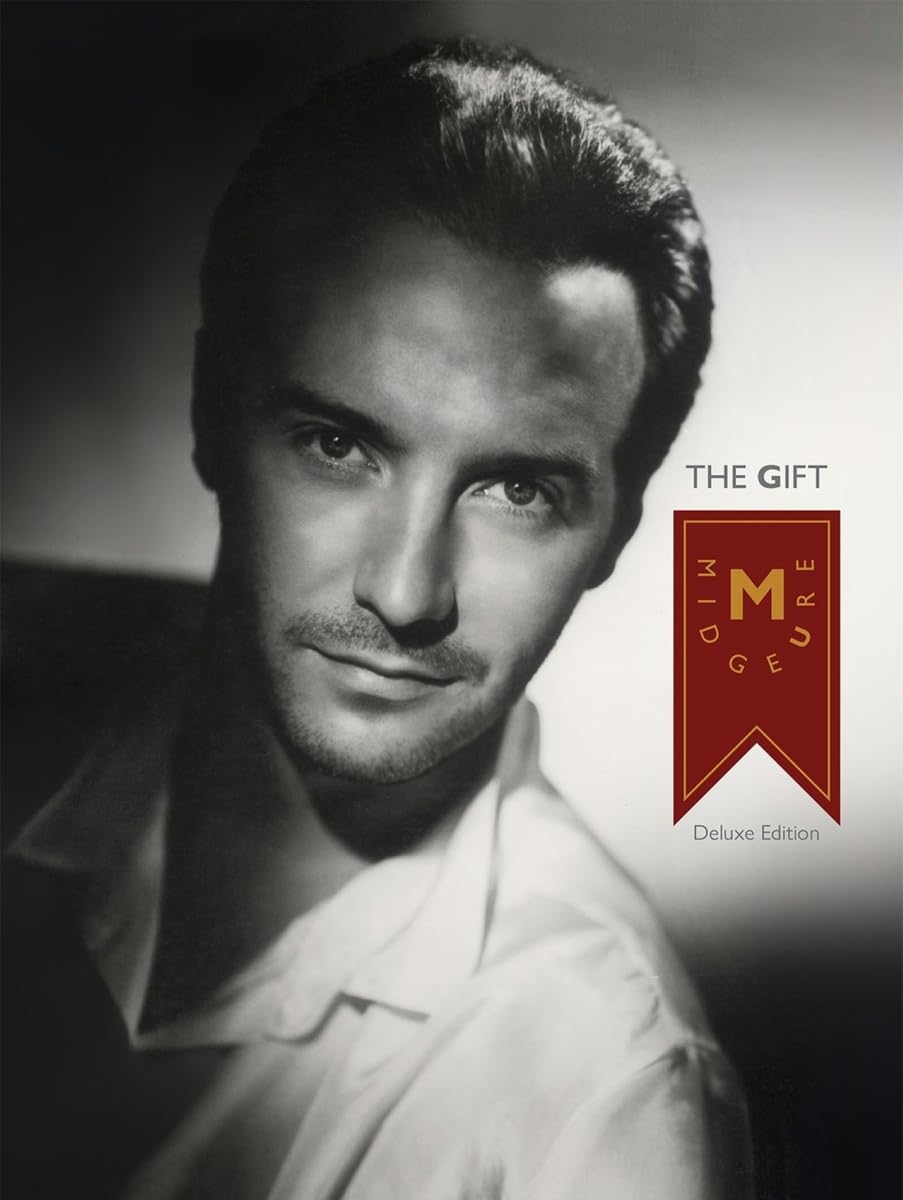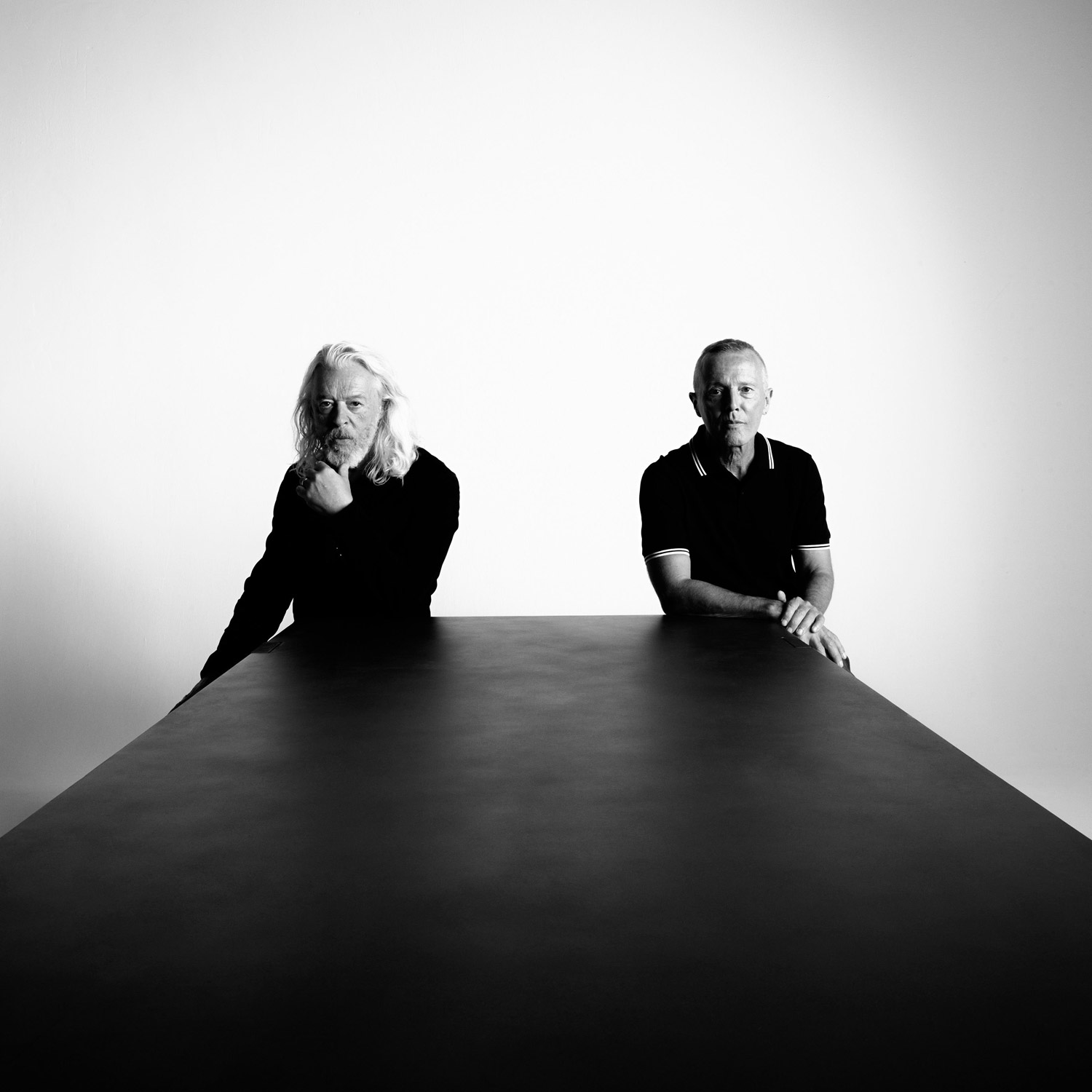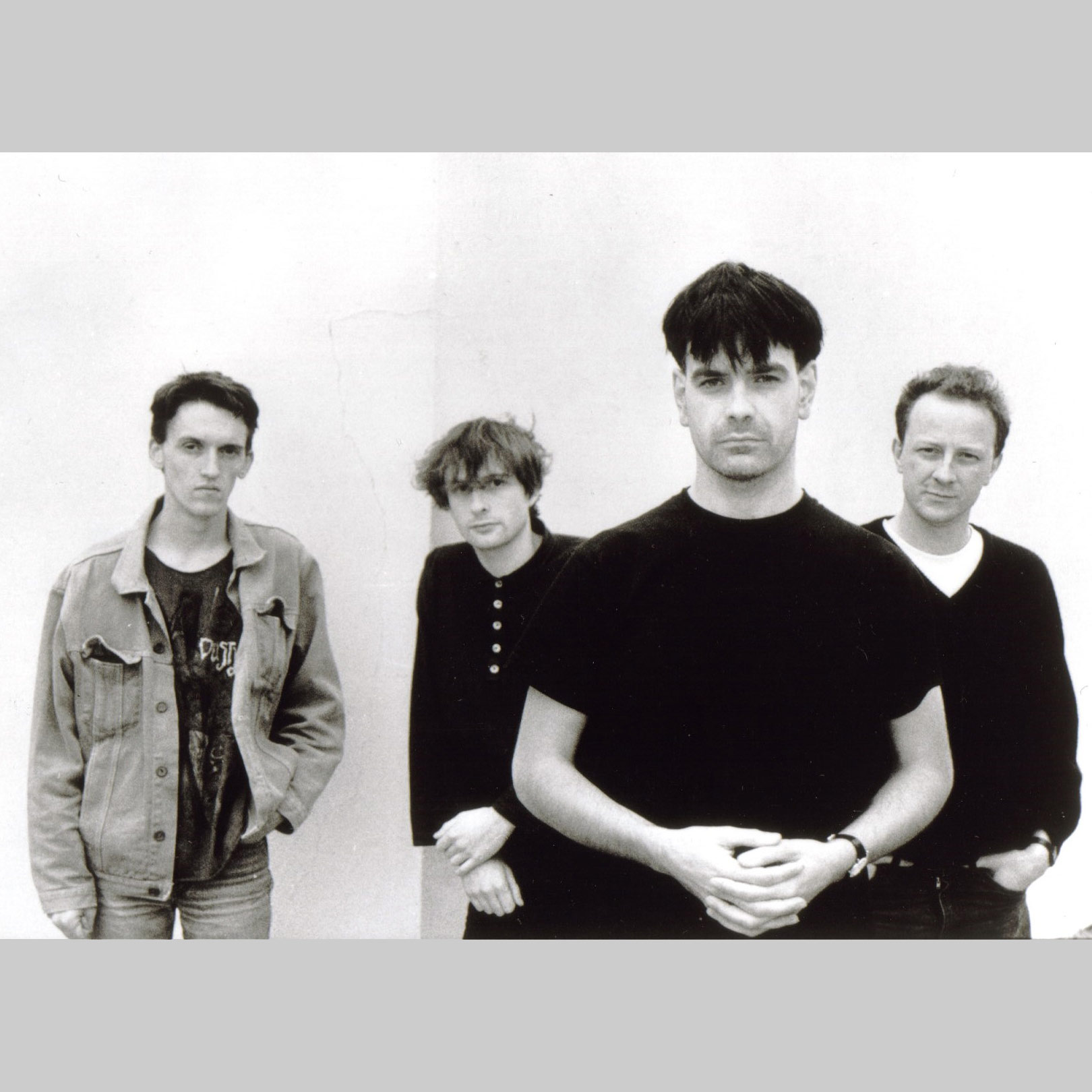An appointment with The Blow Monkeys’ Dr. Robert
An SDE interview

Sean Hannam talks to Blow Monkeys frontman Dr. Robert – aka Robert Howard – ahead of this month’s BMG deluxe CD reissue of Animal Magic, their breakthrough record from 1986.
Animal Magic, the second album by ‘80s pop-soulsters The Blow Monkeys, is being reissued as a 4CD set featuring remixes, rarities and B-sides, along with a limited-edition white vinyl LP version.
Coming off the back of international hit single, ‘Digging Your Scene’, which was the record that changed the band members’ lives and catapulted them to fame, 1986’s Animal Magic showcased a richer and more expansive sound than their debut, Limping For A Generation.
SDE spoke to Dr. Robert and got him to share his memories of writing and recording the record, talk about his influences and tell us what The Blow Monkeys have got planned for the rest of 2023.
SDE: Let’s talk about the reissue of Animal Magic. The record turns 37 this year. How does it feel to have it back out there?
Dr. Robert: In a way it’s always there because of Spotify, isn’t it? BMG approached me and asked if I’d help them with it. I’m proud of the record and the band are still going – we still play songs from it. In fact, we might put a couple more in the set.
I hadn’t sat down and listened to it for, I don’t know, 30 years, so I had a listen and I thought it had aged well, probably better than some of our other ones. It has a certain timelessness to it, which I was surprised and delighted by. It’s essentially us playing as a band, but with strings, horns and backing singers. But it is us – it’s not a LinnDrum. Well, except for ‘Digging Your Scene.’
Where does it sit in your back catalogue? Is it one of your favourite albums? Arguably it’s your best-known record, as it was your breakthrough long-player, wasn’t it?
Yes – worldwide it was. It did well in America. I’d put it right up there for me. Personally, I really like Journey To You, the one we’ve just done, and I like Feels Like A New Morning, Animal Magic and the first one – Limping For A Generation. I’m happy for Animal Magic to get another run.
It came out as a 2CD deluxe version in 2012. Why is the new one different?
This is on BMG rather than Cherry Red. They’re doing what they call Iconic Albums. It does have most of the same things on it, but we’ve also managed to add other mixes and all sorts of bits.
Are you a fan of remixes?
It depends on who does them. When I did ‘Wait’ with Kym Mazelle, which was obviously a club record, when people like Juan Atkins and Kevin Saunderson got their hands on it, I was delighted – that’s proper remixing. There were hundreds of mixes of ‘Digging Your Scene’ – I lost count of them. It wasn’t a necessary evil, but I wasn’t mad on all of them.
Animal Magic was a step on from your debut album musically, as it was more dancey and soulful, wasn’t it? It’s a bigger-sounding record than Limping For A Generation. Was there any pressure to follow up your debut?
There was no pressure. Limping… got good reviews, it got us noticed and got us on the circuit, but it wasn’t a hit album. ‘Forbidden Fruit’ was the first single [from Animal Magic]. It crawled into the Top 75. RCA was spending a little bit more money on us and giving us slightly bigger budgets for videos, so I could feel that something was happening, but I wasn’t convinced that ‘Digging Your Scene’ would be a hit.
I went to America to do a mix of it at Arthur Baker’s studio – it was the first time I’d been to New York, in ’85. I came back with a new version to play to the guys and said, ‘The good news is I think we might have a hit record, but the bad news I don’t think you’re on it!’
So, did you rerecord it?
Just the bass and drums – I worked with a guy called Michael Baker at Unique Studios in New York. There were no live instruments – it was just samplers, which was new to me. They replaced our drums and bass with a LinnDrum, kept a bit of my guitar, my vocals and Nev’s [Neville Henry] sax. It was the beginning of that ‘80s sound – that Hall & Oates snare and all that.
Do you think the song would’ve been a hit without the remix?
No – we had that X factor that made it sound contemporary, which got us past the radio bods. There was resistance before that.
Lyrically ‘Digging Your Scene’ was inspired by the AIDS crisis. You’ve always had a knack for getting political messages into pop songs. Do you remember writing ‘Digging Your Scene?’
Yeah – I’d split up with my first wife and I was living in a basement flat in Clapham. I had a little Drumatix drum machine and I really liked the Marvin Gaye tune ‘Sexual Healing’ – how simple it was and the drum beat behind it… I’d seen a documentary on him when he was in Belgium and the whole soul thing was starting to come out in me.
It hadn’t come out for Limping… I’d only just started writing songs and beginning to fathom out how it worked. I still haven’t really although I realised I was quite good at mixing soul with rock – indie-soul, if you like. That’s when I discovered myself – my voice and my writing.
King’s Lynn, where I grew up, was a Northern Soul town – it was deep in me. There was a famous record shop called Soul Bowl there – all my friends were into the soul thing. When I was growing up, my sisters, who were 10 years older than me, had all the Motown and Bacharach and David records. I can remember standing on the terraces of King’s Lynn football club with my dad in the freezing winter. At half-time, you’d hear ‘Band of Gold’ by Freda Payne and I was captivated.
What are your memories of writing and making Animal Magic?
We locked ourselves away in this little studio in Victoria called The Point and we also did a lot of it at Solid Bond, which was Paul Weller’s studio.
That was the old Philips studio, in Marble Arch…
Yeah – that’s right, in Stanhope Place. Unbeknown to me at the time, that was where the Dusty Springfield and The Walker Brothers stuff had been done, and even the Scott Walker solo albums. I didn’t realise, but I was in that room – that’s where we recorded the strings.
Pete Wilson [producer] was brilliant. I played him Forever Changes by Love endlessly – he didn’t know it. I said, ‘Listen to that.’ Underneath all the strings and the Mariachi horns, there was a garage band – it wasn’t session musicians. That’s what I wanted with Animal Magic, but also that big panoramic, CinemaScope topping. I was so thrilled because I could sit in there and there were proper musicians with violins and all that playing our tunes. I was just a herbert from King’s Lynn, but there we were, with all these highfalutin musicians. ‘Is it F sharp?’ ‘I don’t fucking know!’
I saw Paul Weller about the place. He was doing The Style Council stuff at the time. There was a bit of a crossover – we checked each other out, but I didn’t really get to know him until Red Wedge.
‘Digging Your Scene’ went to number 12 in the UK and also did well in the States. How did your life change?
It was mad. I’d moved to a flat above a record shop on Brixton high street – I was sharing it with a friend called Hector, who was a DJ at the Wag Club. I used to take his records in on a Saturday night and all of a sudden I couldn’t do that anymore because I was on the telly. That was the power of Top of the Pops in those days – it was still big and everybody watched it.
The first thing we ever did was Wogan – I don’t know how we got on there, but we went from playing to 200 people to 2,000 overnight
Dr. Robert
The first thing we ever did was Wogan – I don’t know how we got on there, but we went from playing to 200 people to 2,000 overnight. Then we flew to America – we were on college radio [with ‘Digging Your Scene’] but I didn’t know what that meant. Then we crossed over.
Our first gig was opening for Robert Palmer, at Red Rocks – he was number one with ‘Addicted To Love.’ We also did big clubs and American Bandstand – it was iconic and fantastic. We had bigger hits in the UK, but ‘Digging…’ was the biggest around the world. It gave us a career in places like Germany and Spain – we were able to tour there. It was a life-changer – there’s no doubt about it.
Did you enjoy being a pop star?
Of course I did. You dream of it. I couldn’t imagine that I could ever get on Top of the Pops. But, without being too brutal about it, you realise how empty and useless it is. Inevitably, it falls away and the cars stop coming, as they say, and all you’re left with then is the music. People underestimate how much of a band we are – I always got the attention and the frontman shit, but actually we were a really strong family. From 1981, when we started out and we knew no one, and we were gagging to get gigs, there was a real bond between us. Because we were a band, it kept my feet on the ground.
With the subject matter of ‘Digging Your Scene’ and your flamboyant image, did people assume you were gay?
I didn’t mind what they thought. As it happened, I wasn’t, but I used to go to gay clubs, like Taboo, a lot because, to be honest with you, in London, in the early ‘80s, it was grim. Pubs closed – there was nowhere to go, but those clubs were open and they played great music. People were flamboyant and there was a freedom – it was a scene. Then AIDS came along and those people got demonised – even the Government starting putting out ads and Donna Summer said AIDS was God’s revenge. I know she took it back later, but that’s where the line ‘It’ll get you in the end – it’s God’s revenge’ came from. At the time, I don’t think a big deal was made of what the song was about lyrically.
I love the strings on the title track of Animal Magic – there’s a definite T. Rex feel. You were a huge Marc Bolan fan weren’t you?
I was and I still am. He’s tremendously underrated as a songwriter. People get caught up in the tragedy of his life and the way he looked and the way he was. There’s something in the way he played guitar – there’s a feel and an X factor. We all play the same chords, man… It’s like Steve Jones from the Pistols – if he plays a bar chord it sounds unlike anyone else who’s ever played one. Bolan had this quirky, weird timing.
If you listen to ‘Mambo Sun’ on Electric Warrior there’s a boogie but it’s funky. I learnt to play guitar largely playing along to those records and a lot of the acoustic Tyrannosaurus Rex stuff. ‘Animal Magic’ was definitely influenced by ‘Jitterbug Love’, where there’s a verse in one time signature and it cuts to half-time for the chorus. I learnt to play that when I was 14. I’ve got a lot to thank Marc Bolan for – he also had a connection to primitive rock ‘n’ roll, like Eddie Cochran and Buddy Holly. That can take you back to Lightnin’ Hopkins and John Lee Hooker. That’s my real love – when I play guitar, that’s what I want to play.
It wasn’t art school – everyone was on about Bowie… I love Bowie – he was fantastic – especially the later Berlin thing – but he was playing a part a lot of the time. Bolan wasn’t – he was the real deal. He wasn’t some art school construct.
‘Sweet Murder’ from Animal Magic has a Bowie plastic soul feel…
Young Americans was probably the first Bowie album that I bought.
Tell me about ‘Burn The Rich’, which has British rock ‘n’ roll legend Joe Brown playing slide guitar on it…
Amazing, eh? I saw ‘Burn The Rich’ painted on the bank opposite where I lived in Brixton. It was a song about that – not an instruction. We were recording at Swanyard – we couldn’t get it right and the engineer said, ‘My dad plays slide.’ I said, ‘Well, get him in.’ The next morning in comes Joe Brown – he was everything you’d want him to be. I knew he was an important figure in British rock ‘n’ roll music and he’d played with Eddie Cochran, He’s still alive – he’s fantastic. A couple of years later I did a version of ‘Wait’ with his daughter, Sam Brown, but it never came out. I then did it with Kym Mazelle.
‘Heaven Is A Place I’m Moving To’ stands out on Animal Magic because it’s more folky, stripped-back and pastoral than some of the other songs. It kind of pre-empts your ‘90s solo material…
It was a breakup song – it has a weird chord structure and was probably influenced by my obsession with the band Laughing Clowns, who I absolutely adored. It was a positive message to myself at a time when things were quite tough. I always liked those solo acoustic moments – it goes back to the heroes of my youth, Bowie and Bolan. What were the teeny boppers thinking when Bowie played ‘Amsterdam’? He was basically channelling Scott Walker.
Bolan would do this thing when he’d sit down and play ‘Cosmic Dancer.’ I wanted to mix it up and try and get it all in there. When I see it now, I can put it into context, but at the time I was just writing songs. I wasn’t thinking too much about it.
Wasn’t ‘Heaven Is A Place I’m Moving To’ originally going to be the follow-up single to ‘Digging Your Scene’, rather than ‘Don’t Be Scared Of Me’?
It should’ve been – I should’ve stuck to my guns and I regret that. It was partly my fault and partly the record company’s – there was an attempt to push us towards the pop end of things. They thought that I could be a pop star, like Wham! or a-ha.
When kids came to see us play in ’86 they didn’t see that – we’d had one hit with ‘Digging…’ but we were really still playing Limping For A Generation and, in my head, we were connected to bands like Laughing Clowns and The Birthday Party. They didn’t see what they thought they were going to get. In ’86 and ’87, there was a time when I was getting the teeny boppers, but I knew that wasn’t where we were or who we were and it wasn’t sustainable. But because I was so busy and preoccupied with having to write and tour, I took my eye off the ball a little bit. I sometimes regretted the way we were represented with the sleeves and the way that we looked. I don’t regret it now but at the time it might have worked against us.
Would you have had more control if you’d been on an indie label rather than a major?
Maybe, but, in general, I was able to call the shots with the record company if we were doing well. I wasn’t one of those people who thought we should be on Factory. RCA was cool – David Bowie was on RCA and so was Elvis Presley, so if it was good enough for them…
Was Animal Magic pretty much written before you went into the studio?
I think it was and then I would’ve demoed it quickly. The record company wanted to hear it before they committed to it.
Did the teen pop shift in the late ‘80s work against The Blow Monkeys? You split up in 1990 and didn’t reform until 2007…
I can remember when RCA signed Take That. Simon Cowell was working at RCA at the time.
That wasn’t what it was. We had come to the end of our contract, the Happy Mondays / Stone Roses thing was beginning to stir – it was the start of the ‘90s and we all had young families. We’d been together 10 years – I think I was quite exhausted and I had a real need to regenerate my absolute love and passion for music. I felt like I needed to educate myself. I can remember when I moved to Oxford – I sat for six month just listening to Harry Smith’s Anthology of American Folk Music and The Library of Congress Recordings [Woody Guthrie].
It was like archaeology – you go and find that artist and then that artist… and then Greenwich Village. That whole journey for me started with Dylan and it opened up a whole new world for me that I wanted to move into. And I wanted to get into production – I was working with Weller and Beth Orton. There were a lot of reasons for me to change.
We don’t need any more useless records – only ones with something to say. There’s no point in clogging up the world with more bad art
Dr. Robert
Did you get a lot of new fans in the ‘90s when you went solo? People who didn’t know the Blow Monkeys…
I guess so. Realms of Gold [his first solo album] came out and I know it wasn’t a massive album but it was well-received and it laid the ground for me. During the whole of the ‘90s I was switching labels and I had a lot on my plate – I had a young family. To be honest with you, I might not have been the best father in the world but I was there all the time.
I didn’t have 100 percent of my energy to dedicate [to my career] like I’d done previously – I felt like I needed a rest. But, at the same time, I was always writing and putting out albums. I recorded Flatlands at home on my little 8-track machine – there were little signposts on the way to say, ‘I’m still here and I’m still making records.’ I wasn’t in the public eye and times were tough but that’s what it’s about – being connected to the music and finding out if you’ve got anything to say. We don’t need any more useless records – only ones with something to say. There’s no point in clogging up the world with more bad art.
I had to dig deep. It’s easier when you’re younger because you have ambition, luck, pheromones and emotions pushing you. When you get older, it becomes harder. That’s why I found such sustenance in the work of people like Fred Neil and Tim Hardin, who had very sad lives but wrote so beautifully. I discovered that I could do that and I enjoyed the solo acoustic gigs I used to do. I’d play with open tunings and I wouldn’t have a setlist. People would come along and expect to see the guy who sang ‘Digging Your Scene’, but that wasn’t what they got. I kind of enjoyed that for a while.
And then in 2007, you got the band back together, as they say…
Yeah, because you fast-forward a few years and the kids have all grown up and left home. I did about 10 solo albums, but I really fancied playing with a band again. I had the time and there was only one group that sprang to mind… We had a history and we always got on.
The only thing that I laid down was that we were going to make new records – it wasn’t about being a nostalgia act. Sure, we’ll do some of those festivals and gigs, but they subsidise some of the other gigs, so why not? We play 40 to 50 percent new songs in the set, but people are still going to dig it because we’re going to make sure that they are as good as if not better than what we did before. I was ambitious for it – I’d moved to Spain and I felt refreshed. I’d also learnt a lot more about music – I had more colours to work with.
You made a great album with P.P. Arnold during that time – Five In The Afternoon.
I loved making that record with her. It went under the radar a little bit. It wasn’t what people might’ve expected – it’s kind of like a folk-soul album.
Any more Blow Monkeys reissues from BMG planned?
They haven’t mentioned it yet, but I suspect they might want to do She Was Only a Grocer’s Daughter. If they want to, I’m up for it – the more the merrier.
It would be great to have some of your solo albums reissued on vinyl…
Yeah – I wouldn’t mind doing a deluxe version of Realms of Gold because I have lots of other stuff from those sessions. I might talk to Cherry Red or Heavenly about doing it – that would be good.
So, what are your plans for The Blow Monkeys in 2023?
We have a full calendar for gigs and we’ve started working on a new album. I think we’re going to put some EPs out first. We’re on a roll – I really enjoyed doing Journey To You. It felt like we got somewhere new with it.
I’ve also recorded an album with Matt Deighton that will come out this year. It’s called The Instant Garden and we recorded it at my friend’s studio in Anglesey – Matt’s songs and my songs. Matt’s magical – he’s a lovely guy and a great guitarist. He’s much better than me but when we play together… he knows all those Tyrannosaurus Rex albums as well, and The Incredible String Band. We’ve got quite a lot in common, so we had to do an album. We haven’t got a release date yet. I hope we can do a couple of gigs together.
I think you’re an underrated guitarist. Every time I see The Blow Monkeys play live, you blow me away. Do people tend to think of you as a vocalist rather than a guitarist?
I think that’s true. I’ve never really gone on about my guitar playing. Paul Weller once said to me, ‘You’ve got no reputation as a guitar player but you’re fucking brilliant!’ I thought, ‘Well, I’ll take that from you.’ When I started doing acoustic solo gigs after The Blow Monkeys people would come along and say, ‘I didn’t know you could play guitar – I thought you were just the guy who posed in-front of the band.’ I’m a rhythm guitarist really, but I know how to play my songs.
One of the tracks on Disc 2 of the Animal Magic 4CD set is a cover version of Curtis Mayfield’s ‘Superfly’, which you still play live to this day. He was a huge influence on you, wasn’t he? Was he one of your musical heroes?
For sure. That’s why we play it, in a way. I always say, ‘Let’s try something else’, but when we’re backstage, our bass player, Mick [Anker] will say, ‘Superfly’ and we’ll go, ‘Oh, alright then.’ If anyone’s going to play it, it should be us. We’re the guardians of it – it’s just such a great vibe. Curtis was a massive influence on us – as a person as well as musically. We actually played ‘Superfly’ with him at the Hammersmith Odeon in ’87 – it was an honour.
You still enjoy playing live, don’t you?
Yeah – that’s what we do. It’s the most fulfilling and exciting part of it all. I enjoy the whole process. All the things that used to bug me, like getting in the van, shitty hotels and horrible little dressing rooms – bring it on! It’s all part of the experience and I realise that it’s too late for me to get a proper job, man. I’m a musician and I love being a musician – that’s what you do. The physical release of singing your songs to people is the best therapy you can get. I started off busking and I often think that’s how I might end up again. And I’m happy with that.
Thanks to Dr. Robert who was talking to Sean Hannam for SDE. Animal Magic is reissued tomorrow, 27 January 2023.
Compare prices and pre-order

The Blow Monkeys
Animal Magic - 4CD deluxe
Compare prices and pre-order

The Blow Monkeys
Animal Magic - white vinyl LP

|
|
||||||||||||||||||||||||||||||||||||||||||||||||||||||||||||||||||||||||
Tracklisting

Animal Magic The Blow Monkeys /
-
-
CD 1
- Digging Your Scene
- Animal Magic
- Wicked Ways
- Sweet Murder
- Aeroplane City Lovesong
- I Nearly Died Laughing
- Don’t Be Scared Of Me
- Burn The Rich
- I Backed A Winner (In You)
- Forbidden Fruit
- Heaven Is A Place I’m Moving To
-
CD 2
- Guess I Love Her Now (Demo)
- Forbidden Fruit (Demo)
- Animal Magic (Demo)
- Wicked Ways (Demo)
- I Nearly Died Laughing (Demo)
- Sweet Murder (Demo)
- Wicked Ways
- Digging Your Scene (Single Edit)
- My America (B-Side To “Forbidden Fruit”)
- The Optimist (B-Side To “Forbidden Fruit”)
- Walking The Bluebeat (B-Side To “Wicked Ways”)
- Digging Your Scene (Scat Mix)
- Superfly (B-Side To “Don’t Be Scared Of Me”)
- Aeroplane City Lovesong (Alternative Recording)
- Man From Russia (Remix)
- Digging Your Scene (Instrumental)
- Wicked Ways (Instrumental)
-
CD 3
- Sweet Murder (Single Version)
- Sweet Murder (Sweet Beat Version)
- Forbidden Fruit (12″ Version)
4. Digging Your Scene (Digging Your Remix) - Digging Your Scene (12” Mastermind Remix)
- Digging Your Scene (U.S. Mix)
- Wicked Ways (Wick-Ed-It Version)
- Digging Your Scene (Long Version)
- Wicked Ways (Long Version)
- Digging Your Scene (Phil Harding Remix)
-
CD 4
- Don’t Be Scared Of Me (Extended Version)
- Superfly (Long Version)
- Don’t Be Scared Of Me (Mx)
- Sweet Murder (Extended Version)
- Digging Your Scene (Longer Mix)
- Sweet Murder (Murderess Dub Version)
- Sweet Murder (Feat. Eek-A-Mouse)
- Digging Your Scene (Pete Wilson Mix)
- Aeroplane City Lovesong (Pete Wilson Remix)
-
CD 1
A collective of musicians formed in the UK in 1985 which organised concerts in support of the policies of the Labour government

 Interview
Interview




By Paul Sinclair
23